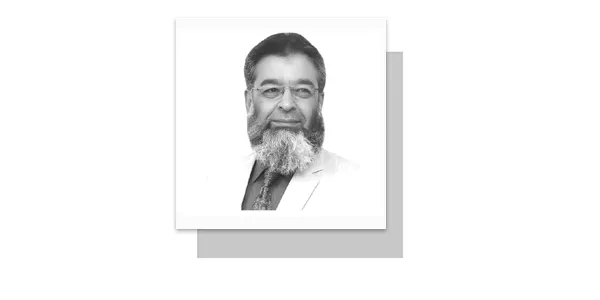IN a parliamentary system, the Constitution is the foundation that defines the structure, powers and limitations of the state. It ensures a separation of powers among the executive, legislative and judiciary branches, maintaining a system of checks and balances to prevent any one branch from dominating. It also safeguards the rights and freedoms of citizens, ensuring governance remains accountable and democratic. The Constitution outlines the role of elected representatives, ensuring that the legitimacy of the government stems from the people’s will. It provides a framework for the peaceful transfer of power, the rule of law and the protection of minority rights, ultimately strengthening democracy. The 1973 Constitution of Pakistan is a landmark in the country’s political and legal history, symbolizing the aspirations of a democratic republic. Since its adoption, it has been amended 26 times, each reflecting the political landscape and interests of the time. These amendments showcase the motivations behind political actions, the figures involved and their beneficiaries.
The First Amendment was enacted on May 4, 1974, during Zulfikar Ali Bhutto’s tenure. It aimed to protect the country from internal and external threats by restricting political party activities and eliminating references to East Pakistan, reflecting the political turbulence of that era. The Second Amendment, passed in September 1974, was significant for defining a “Muslim” and officially designating Ahmadis as non-Muslims. Other early amendments included the Third and Fourth Amendments under Bhutto’s leadership, which extended preventive detention and allocated more seats for minorities, respectively. The Fifth and Sixth Amendments, passed in the late 1970s, imposed restrictions on the judiciary and set retirement ages for judges.
General Zia-ul-Haq’s regime brought the most significant and controversial amendments, particularly the Eighth Amendment in 1985, which granted the President the power to dissolve the National Assembly. This amendment shifted the balance of power towards the presidency, undermining parliamentary democracy. Zia’s tenure also saw the proposal of the Ninth Amendment, which sought to introduce Shariah law as the supreme law of Pakistan, but it was never passed. The Tenth Amendment in 1987 dealt with parliamentary procedures, while the Eleventh and Twelfth Amendments during Benazir Bhutto’s tenure sought to limit presidential power and address terrorism through special courts, respectively. However, it was Nawaz Sharif’s government that made the most significant changes in the late 1990s, with the Thirteenth and Fourteenth Amendments. These amendments diminished the president’s power to dissolve parliament and strengthened party discipline, reducing defections among party members.
During the Musharraf era, the Seventeenth Amendment restored many of the presidential powers that had been revoked, showcasing the military’s dominance over civilian institutions. It was only in 2010, with the Eighteenth Amendment, that the Constitution returned to its original parliamentary form, transferring significant powers to provincial governments and reversing many of Musharraf’s changes. The subsequent Nineteenth and Twentieth Amendments, passed in 2011 and 2012, respectively, focused on judicial reforms and ensuring free and fair elections. These amendments were seen as essential steps towards strengthening democratic governance. In 2015, in the aftermath of the Peshawar school attack, the Twenty-first Amendment allowed for the establishment of military courts to try terrorism-related cases. This was followed by the Twenty-second Amendment, which empowered the Chief Election Commissioner to oversee elections.
The Twenty-third Amendment, passed in 2017, extended the military courts for two more years. The Twenty-fourth Amendment focused on reallocating National Assembly seats based on census results, while the Twenty-fifth Amendment integrated the Federally Administered Tribal Areas (FATA) into Khyber Pakhtunkhwa, marking a major step in addressing long-standing administrative issues.
Most recently, on October 20, 2024, Pakistan’s Senate and National Assembly passed the Twenty-sixth Amendment, which introduced significant political reforms aimed at improving governance. This amendment strengthens democratic institutions by enhancing accountability and transparency. It also grants more autonomy to provincial governments, reflecting Pakistan’s commitment to evolving its constitutional framework in response to changing political and social dynamics.
A comparative analysis of these amendments shows a clear divide between those introduced during democratic regimes and those under dictatorships. Amendments in democratic eras have focused on devolution of power, judicial reforms and improving public services. In contrast, amendments under authoritarian regimes concentrated power in the executive branch, offering little to the public in terms of democratic participation or improved governance. In conclusion, the 26 amendments to Pakistan’s 1973 Constitution reflect the nation’s ongoing struggle with governance and the tension between democratic and authoritarian forces. While some amendments have been pivotal for political stability and national security, others have served to consolidate power. The challenge moving forward is to ensure that future amendments prioritize public interest, strengthen democratic institutions and foster equitable development across the country. This will ensure that the Constitution continues to serve as the cornerstone of a fair and democratic governance system.
—The writer is contributing columnist, based in Islamabad.
(ememiqbal68@gmail.com)










